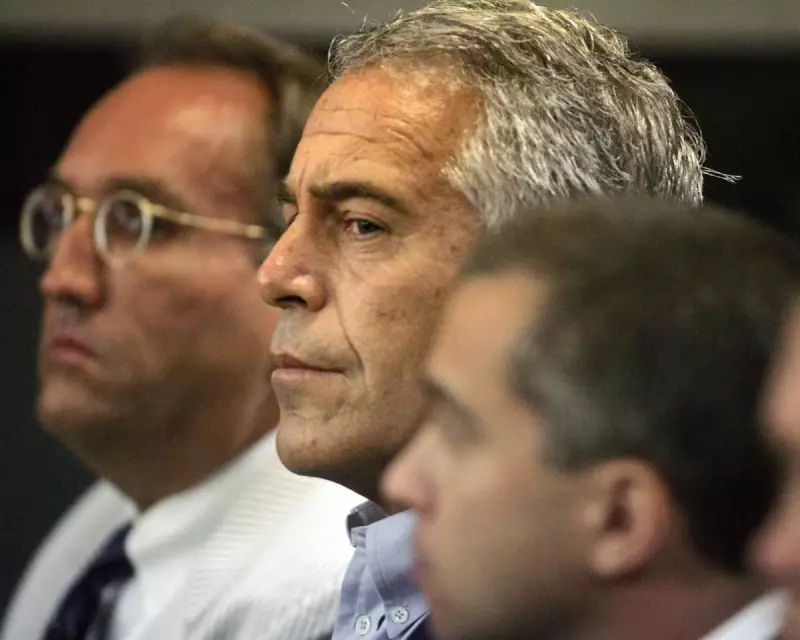
Freshly disclosed correspondence from Jeffrey Epstein's inbox has laid bare the startling extent to which the convicted sex offender remained embedded within elite circles long after his criminal conviction. The emails, spanning from 2009 to 2019, demonstrate how figures from royalty, politics, academia and business continued to seek his counsel and company.
The Unrepentant Network
Despite Epstein's 2008 guilty plea for soliciting prostitution from a minor, the documents reveal he maintained active communication with numerous influential contacts. The correspondence shows Epstein acting as political adviser, personal confidant and strategic fixer for powerful individuals who appeared untroubled by his status as a registered sex offender.
In several 2018 exchanges, Epstein provided strategic advice to longtime Trump ally Steve Bannon during his European political tour. When Bannon forwarded a news clip describing German media as "underestimating" him, Epstein responded enthusiastically: "luv it." The convicted sex offender then outlined plans to connect Bannon with European leaders, writing: "there are many leaders of countries we can organize for you to have one on ones."
The emails particularly challenge Prince Andrew's official account of his relationship with Epstein. Communication from March 2011 shows continued contact four months after the prince publicly claimed to have severed ties. In a message to Epstein and Ghislaine Maxwell regarding allegations, Andrew wrote: "I can't take any more of this my end."
Academic and Political Connections
Epstein's reach extended deeply into academic and Democratic circles. When physicist Lawrence Krauss faced sexual harassment allegations, he turned to Epstein for advice on handling media inquiries. Epstein's response was characteristically direct, asking whether Krauss had had sex with the person in question before advising him not to engage with journalists.
Larry Summers, former Treasury Secretary under Bill Clinton and Harvard University president, discussed his interactions with women with Epstein, who offered coaching on his responses. In one telling exchange, Summers posed the rhetorical question: "I'm trying to figure why American elite think if u murder your baby by beating and abandonment it must be irrelevant to your admission to Harvard, but hit on a few women 10 years ago and can't work at a network or think tank."
Kathryn Ruemmler, former White House counsel under Barack Obama, maintained correspondence with Epstein that included disparaging remarks about Donald Trump, whom she described as "so gross." Epstein concurred, replying: "worse in real life and upclose."
Media Manipulation and Foreign Influence
Journalist Michael Wolff featured prominently in the emails, often advising Epstein on managing his relationship with Donald Trump. In 2015, Wolff suggested Epstein should "let him [Trump] hang himself" if questioned about their relationship during a CNN appearance. Shortly before the 2016 election, Wolff even proposed that Epstein could "help finish" Trump's campaign by coming forward with damaging information.
Epstein's ambitions extended to shaping foreign policy, particularly around Donald Trump's 2018 meeting with Vladimir Putin. In an email to Thorbjørn Jagland, former Norwegian prime minister then leading the Council of Europe, Epstein proposed that Russian Foreign Minister Sergei Lavrov could benefit from his insights into the US president. He claimed to have previously educated Russia's UN ambassador Vitaly Churkin about Trump, noting: "He understood Trump after our conversations."
The correspondence reveals Epstein's role as a social connector for global elites. Biotech venture capitalist Boris Nikolic wrote from the World Economic Forum in Davos about meeting "your friend" Bill Clinton, then-French president Nicolas Sarkozy and Prince Andrew. In emails with Emirati businessman Sultan Ahmed bin Sulayem, Epstein recommended Steve Bannon as someone he would like, though Sulayem noted that "Trump doesn't like him."
Other notable figures in Epstein's orbit included Silicon Valley investor Peter Thiel, linguist Noam Chomsky, and artist Andres Serrano, who discussed the 2016 election with Epstein and expressed disgust at the outrage over Trump's "grab them by the pussy" comments.
The Chilling Reality of Elite Impunity
Rather than revealing a shadowy conspiracy, the emails paint a more disturbing picture of how wealth and connections can insulate individuals from accountability. The casual, bantering tone of the exchanges suggests Epstein faced no social ostracism for his crimes, receiving instead continued validation from powerful acquaintances.
As Jamie Raskin, the top Democrat on the House judiciary committee, observed: "This is a guy who I believe gave huge donations to colleges and universities, including Harvard and MIT, and those kinds of gifts can buy you a lot of currency and access in different elite circles."
The documents ultimately reveal a system where the rules applied differently to those within elite circles, with consequences for horrific crimes becoming merely another obstacle to be navigated with the help of powerful friends.





